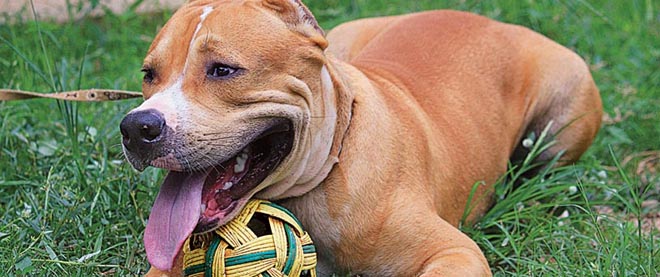Owners call bull on dog bans
Legislation against certain breeds of dogs gets another look
Share
They say that once it sinks its teeth in, a pit bull terrier won’t let go. A stereotype, of course, but it might apply—at least metaphorically—to owners of the much-maligned pooches. After years of lobbying against legal restrictions aimed at their beloved animals, their tenacity is paying off.
Last week, Edmonton became the latest community to reconsider so-called “breed-specific” animal-control legislation, acknowledging a lack of evidence that such rules reduce attacks, and the difficulty of determining a dog’s breed without expensive DNA testing. A city council committee recommended scrapping bylaw wording that forces pit bull owners to pay higher licensing fees and fines, to chain or pen their dogs when the animals are outdoors and to carry $1 million in liability insurance. Edmonton isn’t the only jurisdiction responding to the pleas of dog-owner groups who see the targeted rules as discriminatory and ineffective. Two years ago, Delta, B.C., dropped its dangerous-breed designation; in New Westminster, B.C., city council agreed last spring to re-examine a similar provision. Last May, Ontario’s Liberal government was embarrassed when a private members’ bill to repeal a pit-bull ban passed second reading with support from all three parties. Even United Airlines has let pit bulls back on its planes.
The breed remains a lightning rod (Maple Ridge, B.C., recently considered, and rejected, a pit-bull ban). But to April Fahr, spokeswoman for B.C.’s HugABull advocacy group, there’s a “slow and steady progression” toward sanctioning problem owners. “It’s easier for us to blame a gene,” she says, “than to look at the real reason for dog aggression, and that’s the behaviour of owners.”
